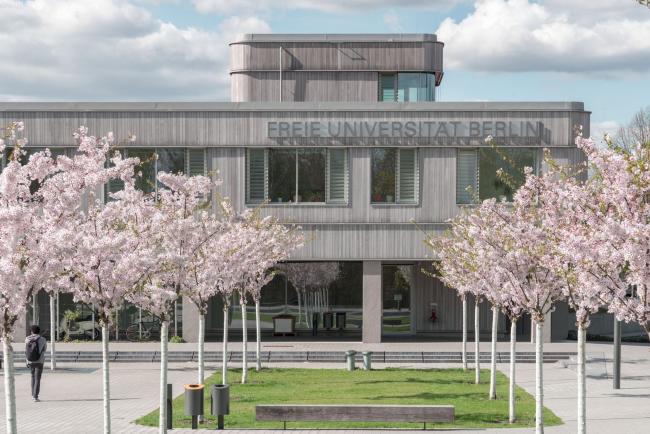
Freie Universität Berlin was founded in 1948 by professors and students, in response to the persecution faced by students who took a critical eye of the system at Universität Unter den Linden, at that time located in the Soviet sector of the divided city. The idea of founding a free university found widespread support in the international community. This outpouring of aid helped pave the way for Freie Universität to become a university with an outstanding international reputation. The principles of freedom and internationality have guided the university’s development ever since. The academic ethos of Freie Universität Berlin is defined by three values: truth, justice, and freedom. Today, Freie Universität Berlin is among Germany’s strongest higher education institutions in terms of research. Some 41,000 students from more than 130 nations study on the university’s park-like campus in the Dahlem district in one of more than 170 study programmes.
Freie Universität won overall distinction in the Excellence Initiative in 2007 and 2012 for its institutional strategy, “Veritas – Justitia – Libertas. International Network University,” which made it the first university in Berlin to earn the status of a University of Excellence. In 2019, together with Humboldt-Universität zu Berlin, Technische Universität Berlin and Charité – School of Medicine, Freie Universität Berlin won Excellence Initiative funding with a joint project proposal. The four partners within the “Berlin University Alliance” aim to overcome institutional and disciplinary boundaries in order to create an integrated research environment. They want to use their combined strength to be a driving force to further develop Berlin into a leading research hub in Europe and an international leader. Diversity and tolerance as well as the education of young researchers are all prerequisites for excellent research and teaching. Accordingly, the partners aim to focus on central cross-cutting issues such as the promotion of diversity and gender equality, research-oriented teaching and learning, and internationalization.
Website: www.fu-berlin.de/international
